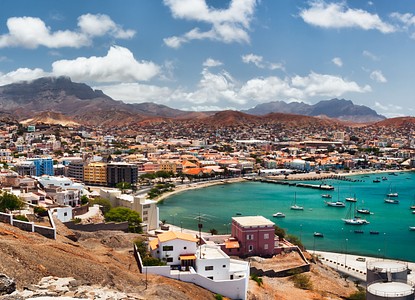The Cape Verdean corporate tax, called Imposto Sobre o Rendimento das Pessoas Colectivas, is levied on both incomes earned in Cape Verde and those acquired outside the territory for resident companies. Non-resident companies with a Permanent Establishment (PE) in Cape Verde are also subject to CIT tax on income from Cape Verdean sources that are associated with the PE.

Corporate taxes
The VAT system in Cape Verde is in line with the European Union (EU) VAT system and is valued at the standard rate of 15%.
The standard VAT rate of 15% is a general consumption tax applicable to the import and sale of goods and services in Cape Verde. The VAT rate will apply to the following amount for the next deliveries of goods and services:
- Diesel: 120%.
- Fuel: 300%.
- Oil: 30%.
- Bhutan: 16.65%
- Fuel oil: 30%.
- Electricity: 30%.
- Tap water from public water supply: 20%.
- Communication services: 60%.
- Passenger transport by road and sea transport of goods: 15%.
The following transactions are not subject to VAT:
- The transfer, for consideration or not, of all or part of the property that constitutes an enterprise or part of an enterprise capable of conducting independent economic activities;
- Compensation for damages;
- Reimbursement of expenses incurred on behalf of and behalf of a third party.
Exempt transactions
VAT regulations establish two types of tax-exempt transactions: exempt transactions without credit and exempt transactions with credit (zero-rate transactions). Paid VAT is refundable if the goods and services are used for taxable transactions of the taxpayer or activities with a zero rate.
Exempt credit-free transactions include the following:
- Hospital and medical care and associated activities are carried out by bodies governed by public enactment, or similar activities carried out by other hospitals and treatment centers.
- Providing medical care through the performance of medical and paramedical professions, as well as the provision of transportation services for the sick or wounded, as well as the supply of human organs, blood, and milk.
- The accumulation of services and goods is closely related to social security and social protection.
- The provision of services and goods is closely linked to the protection of children and young people by public law authorities.
- Providing education for children or youth, school or university education, including the procurement of services and goods closely related to this.
- The supply of services and goods is closely related to them by non-profit organizations.
- Accumulation of copyrights and art objects by the original creators or their heirs.
- Delivery by postal services of postage stamps and stamped paper.
- Provision of specific cultural, educational, technical, and recreational duties.
- Garbage removal.
- Burial and cremation supplies.
- Banking, financial, insurance, and reinsurance operations, including related services provided by insurance brokers and insurance agents.
- Real estate transactions (excluding the provision of housing in the hotel sector or sectors with a similar function, preparation of premises for collective parking of vehicles, rental of stationary machinery and equipment, as well as procurement of premises for exhibitions and advertising).
- Primary food and pharmaceutical products are listed.
- Products used in agriculture, livestock, forestry, and fisheries.
Exempt credit transactions (zero-rate transactions) on imports include the following:
- Import of goods, the delivery of which is subject to the exemption.
- Reimportation of goods by the person who exported them in the country in which they were exported, where they are entitled to freedom from customs duties.
- Services related to the import of goods, the value of which is included in the taxable amount.
- Import of gold by the central bank.
- Import into ports by marine fishing enterprises of their catches, unprocessed or preserved for marketing, but before delivery.
- Importation of goods under diplomatic and consular agreements that are subject to exemption from customs duties.
- Import of goods for refueling and supplying ships and aircraft.
The most significant credit exemptions (zero rates) for exports and related transactions include the following:
- Supply, modification, repair, maintenance, chartering, and lease of aircraft used by airlines operating on both domestic and international routes, as well as supply, rental, repair, and maintenance of equipment built into or used in them.
- Supply of goods for refueling and securing such aircraft.
- Services to meet the primary needs of such aircraft or their cargo.
Customs duties
Customs duties are levied at rates ranging from 0% to 50% of the customs value of most imported goods. Since Cape Verde imports most of the goods it consumes, some domestically produced goods are subject to 50% tariff protection. Raw materials or capital goods can be imported free of customs duties or at a low rate.
Special consumption tax
Special consumption tax is levied at rates ranging from 10% to 150% on goods that are considered superfluous, luxurious, or undesirable for reasons of economic, social, or environmental policy.
The excise rate is 40% for beer, wines, vermouth, and other alcoholic beverages and 20% for tobacco.
Vehicles used for transportation weighing up to 5 tons are subject to a rate of up to 150% depending on age:
- Up to four years: not applicable.
- Four to six years old: 40%.
- Six to ten years old: 80%.
- More than ten years: 150%.






